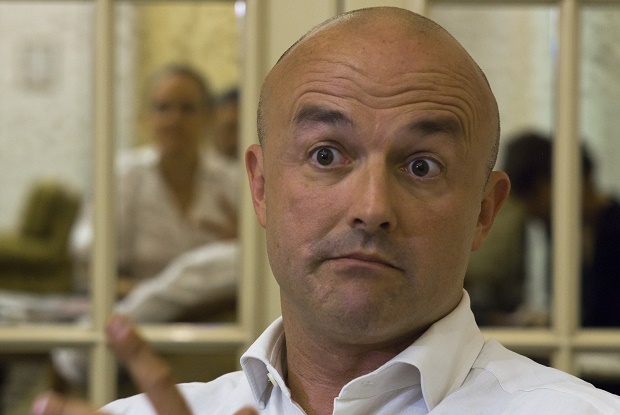Vatican leaks scandal grows: Book exposes resistance, waste

In this Tuesday, May 30, 2012 file photo, Gianluigi Nuzzi, the investigative journalist who published a book of leaked papal documents, is portraited during an interview with the Associate Press, in Rome. A new book about the Vatican by Nuzzi is due out on the Italian bookstores Nov. 5. AP FILE PHOTO
The Vatican’s new leaks scandal intensified Tuesday with a book detailing the mismanagement and internal resistance that is thwarting Pope Francis’ financial reform efforts. Citing confidential documents, it exposed millions of euros in lost rental revenue, the scandal of the Vatican’s saint-making machine, greedy monsignors and a professional-style break-in at the Vatican.
“Merchants in the Temple,” by Italian journalist Gianluigi Nuzzi, is due out Thursday but an advance copy was obtained Tuesday by The Associated Press. Its publication, and that of a second book, come days after the Vatican announced the arrests of two members of Francis’ financial reform commission in an investigation into leaked documents.
READ: Two ‘moles’ arrested as fresh scandal hits Vatican
The arrests mark a new chapter in the so-called “Vatileaks” scandal, which began in 2012 with an earlier Nuzzi expose, peaked with the conviction of Pope Benedict XVI’s butler on charges he supplied Nuzzi with stolen documents, and ended a year later when a clearly exhausted Benedict resigned, unable to carry on.
Francis was elected to succeed Benedict with a mandate from his fellow cardinals to reform the Vatican bureaucracy and clean up its opaque finances. He set out promptly by creating a commission of eight experts to gather information from all Vatican offices to shed light on the Holy See’s overall financial situation, which by that time was in dire straits.
Article continues after this advertisement“Holy Father, … There is a complete absence of transparency in the bookkeeping both of the Holy See and the Governorate,” five international auditors wrote Francis in June, 2013, according to Nuzzi’s book. “Costs are out of control. This applies in particular to personnel costs, but it also extends elsewhere.”
Article continues after this advertisementNuzzi’s book focuses on the work of the commission and the resistance it encountered in getting information out of Vatican departments that have long enjoyed near-complete autonomy in budgeting, hiring and spending.
Citing emails, minutes of meetings, recorded private conversations and memos, the book paints a picture of a Vatican bureaucracy entrenched in a culture of mismanagement, waste and secrecy.